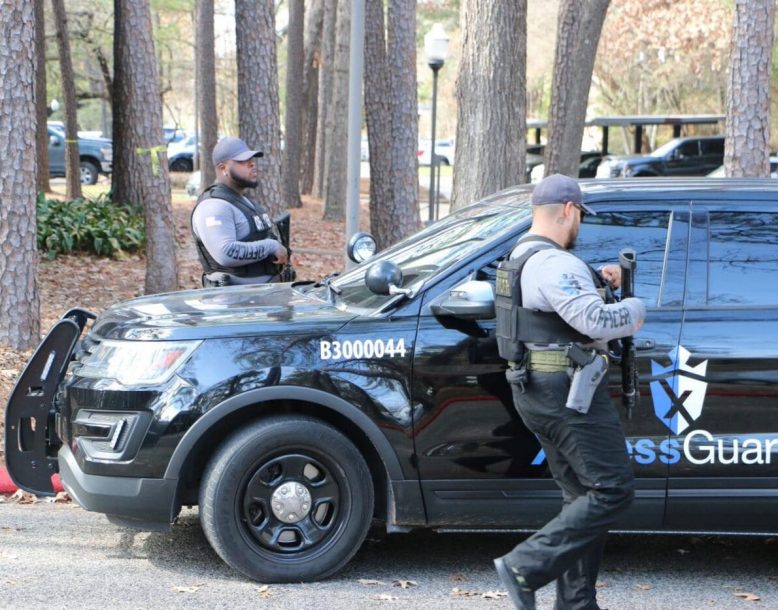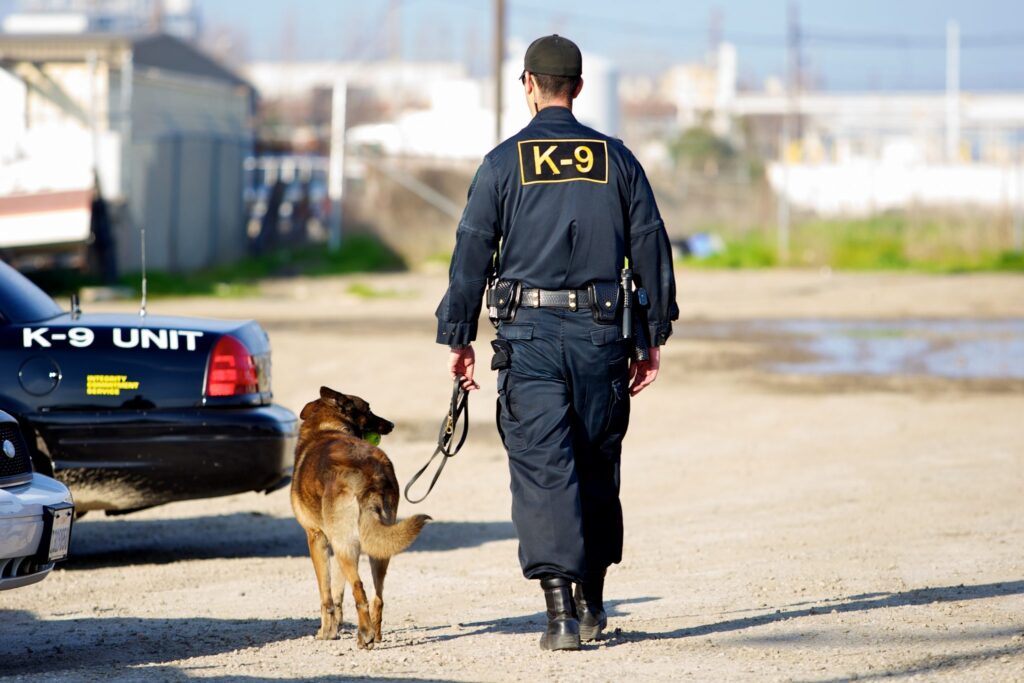As a city planner or event organizer in 2025, the stakes for creating safe, secure, and enjoyable events are higher than ever. The Cybertruck explosion and the Bourbon Street incident have served as stark reminders that threats to public safety can arise in unpredictable ways. Whether you’re planning a small community gathering or a large-scale festival, the responsibility to protect attendees is paramount. This guide will provide actionable insights into making your event secure, based on expertise and lessons learned from past incidents.
Understanding Today’s Security Challenges
Recent high-profile incidents have underscored the need for robust security planning. Events are increasingly vulnerable to a range of threats, including overcrowding, cyberattacks, and physical dangers. Attendees expect not only entertainment but also an assurance of safety. Achieving this requires thorough preparation and a proactive approach to potential risks.
1. Choosing the Right Venue: Making Your Event Secure
Your choice of venue plays a critical role in the overall security of your event. Begin by creating a detailed profile of your event, including expected attendance, activities, and audience demographics. Use this profile to evaluate venues with the following considerations:
Capacity
- Ensure the venue can accommodate your expected number of attendees without overcrowding.
- Consider how people will move within the space, identifying potential bottlenecks or areas that could lead to congestion.
- Make note of restricted areas and plan physical barriers or signage to keep attendees out of unauthorized zones.
Location
- Weigh the pros and cons of urban versus remote venues. Urban locations offer accessibility but may attract uninvited guests, while remote sites require careful planning for transportation and emergency access.
- Verify necessary permits and insurance requirements, especially if using public property.
Access
- Ensure the venue is accessible for all, including those with disabilities, wheelchairs, or strollers.
- Emergency exits should be clearly marked and easily accessible. Conduct drills to confirm their effectiveness.
2. Advanced Crowd Control Strategies
Managing large crowds is a challenge, particularly at high-profile events. Effective crowd control hinges on proper planning, experienced personnel, and the right tools.
Hire Professional Security Teams
- Collaborate with trained security personnel who understand the venue and its unique challenges.
- Invest in professional two-way radios to ensure clear, uninterrupted communication among the team.
Digital Check-Ins and Screening
- Utilize digital check-in systems to streamline entry and reduce bottlenecks at entrances.
- Predefine what items are allowed and communicate this clearly to attendees in advance. Prohibited items should be confiscated or securely stored upon entry.
Monitor Crowd Behavior
- Deploy security staff at key locations to watch for escalating tensions or suspicious activity.
- Use surveillance cameras to oversee the entire venue and respond quickly to incidents.
3. Emergency Planning: Be Ready for the Unexpected
An effective emergency plan can mean the difference between a minor incident and a disaster. Tailor your plan to the size and type of your event, keeping the following in mind:
Identify Risks
- Common risks include injuries, fires, natural disasters, and security breaches.
- Assess unique risks specific to your event, such as heavy equipment for a music festival or fireworks for a city celebration.
First Responders on Site
- For larger events, arrange for medical staff, ambulances, and firefighting services to be on standby.
- Have a clear protocol for communicating emergencies to all attendees and staff.
4. Cybersecurity: The Digital Frontier of Event Safety
In today’s tech-driven world, cyber threats are as real as physical dangers. Protecting your event from cyberattacks is essential to maintaining trust and operational integrity.
Social Media Monitoring
- Monitor social media for suspicious activity or potential threats related to your event. Criminals often use platforms like Twitter or Facebook to plan disruptions.
Secure Payment Gateways
- Attendees expect to register and pay for events online. Use trusted platforms like PayPal or Stripe to secure transactions and protect customer data.
- If building a custom payment gateway, ensure it is encrypted to prevent data breaches.
Wi-Fi Security
- Public Wi-Fi at your event should have strong encryption and limited access to prevent unauthorized use.
- Encourage attendees to use secure connections for sensitive activities, like online purchases.
5. Monitoring During the Event
Even with thorough planning, active monitoring during the event is crucial to its success.
Real-Time Updates
- Security teams should maintain constant communication, sharing updates on crowd behavior, weather conditions, and potential risks.
- Assign staff to regularly patrol the venue, checking for issues like blocked exits or unattended items.
Behavioral Analysis
- Train security personnel to recognize signs of distress, agitation, or suspicious activity among attendees. Early intervention can prevent larger issues.
6. Post-Event Evaluation: Learning from Experience
Once the event concludes, take time to review its security measures. Gather feedback from your team and attendees to identify areas for improvement. Key post-event considerations include:
- Incident Reporting: Document any security breaches or near-misses and analyze how they were handled.
- Team Debriefing: Hold a meeting with staff to discuss what worked well and what could be improved.
- Prepare for Next Time: Use lessons learned to refine your processes and strengthen future event security.
Should I Make Sure the Whole Police Force is on Duty?
The idea of having the entire police force on duty during an event may seem like a logical way to ensure safety, but it’s not always the most effective or necessary approach. Determining whether to deploy significant police resources depends on the nature of the event, its size, location, and the potential risks involved.
When a Large Police Presence is Necessary
- High-Profile Events: For events like major music festivals, parades, or gatherings involving high-profile figures, a larger police presence can act as both a deterrent and a rapid response team for potential incidents.
- Known Risks: If intelligence suggests a credible threat or if the event occurs in an area with higher crime rates, increasing police presence can be justified.
- Crowd Size: Events expected to attract tens of thousands of attendees or more require additional oversight to manage traffic, entry points, and emergency responses effectively.
When It’s Not Needed
- Small, Private Events: For gatherings with a few hundred attendees, private security teams and limited police support are typically sufficient.
- Overburdening Resources: Deploying an entire police force can strain resources, leaving other parts of the city vulnerable. For lower-risk events, a measured approach with a mix of law enforcement and private security is preferable.
- Collaborative Solutions: Pairing police with event-specific security personnel allows for effective coverage without overstretching public resources.
Striking the Right Balance
City planners and event organizers should work closely with law enforcement to assess the event’s needs. This collaboration can include:
- Pre-Event Meetings: Discussing the scope of the event and identifying specific areas where police support will be critical.
- Specialized Assignments: Assigning officers to high-risk zones while relying on private security for crowd control or entry management.
- Leveraging Technology: Using surveillance systems and other tech tools to reduce the need for physical manpower.
A full police deployment isn’t always the answer, but a well-thought-out strategy ensures that resources are used effectively while keeping the city safe.
Conducting a Citywide Safety Audit Before the Event
In the weeks leading up to a major event, conducting a citywide safety audit is essential to identify and address potential vulnerabilities. This proactive approach ensures that barriers, emergency measures, and infrastructure are ready to handle the demands of a large-scale gathering.
What to Include in the Audit
- Physical Barriers and Entry Points
- Inspect barriers at entrances and exits to ensure they are secure and well-positioned.
- Verify the integrity of fencing, barricades, and other physical deterrents to unauthorized access.
- Emergency Exits and Evacuation Routes
- Confirm that all emergency exits are clearly marked, unobstructed, and functional.
- Test evacuation routes for accessibility and speed under simulated conditions.
- City Infrastructure Readiness
- Assess roads, sidewalks, and public transport routes for potential bottlenecks or hazards.
- Ensure streetlights, traffic signals, and surveillance cameras are in working order.
- Utilities and Communication
- Check power supplies and backup generators for critical systems like lighting and communication tools.
- Verify that cell towers and Wi-Fi networks can handle the increased demand from attendees.
Working with Experts
City planners should collaborate with local agencies, private security firms, and infrastructure specialists to conduct a thorough audit. This team-based approach ensures that every aspect of safety is addressed comprehensively.
Post-Audit Implementation
Once vulnerabilities are identified, take immediate steps to address them:
- Repair and Reinforce: Fix damaged barriers, add additional fencing, or upgrade emergency signage where needed.
- Deploy Resources Strategically: Position emergency personnel and equipment at key locations identified during the audit.
- Test the System: Conduct walkthroughs and simulations with event staff and first responders to ensure everyone is prepared for various scenarios.
A safety audit is not just a box to check; it’s a critical step in building confidence among attendees and ensuring a smooth, secure event.
The Key to Making Your Event Secure
In 2025, making your event secure is about more than just hiring a few security guards. It requires meticulous planning, a strong understanding of modern threats, and a commitment to attendee safety. By focusing on venue selection, crowd control, emergency preparedness, and cybersecurity, you can create an environment where attendees feel safe and confident, allowing them to enjoy your event to the fullest.
No matter the size or scope of your event, safety should always be the top priority. Take proactive steps to mitigate risks, and you’ll not only ensure the success of your event but also earn the trust of your attendees, setting a standard for others to follow.


